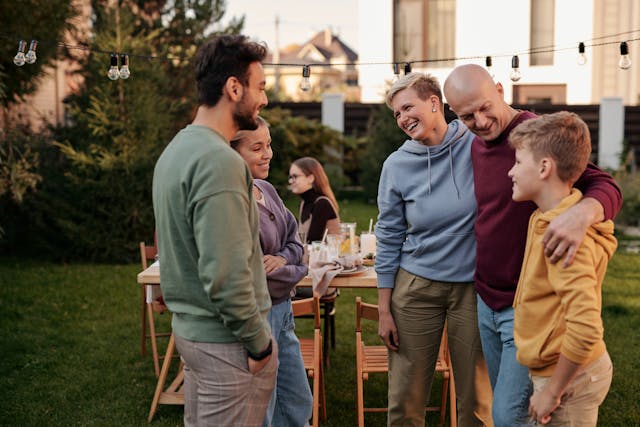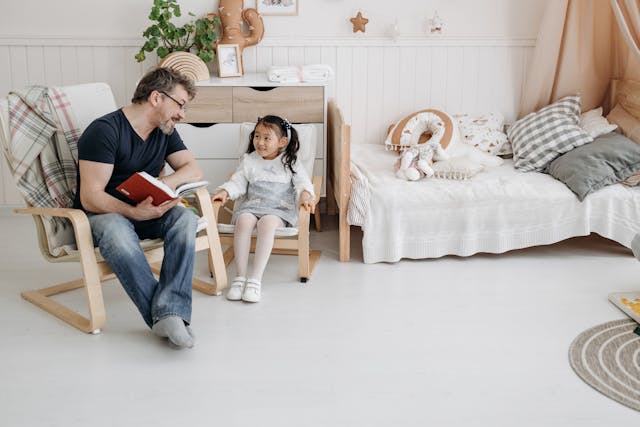What is the Parent (subclass 103) Visa?
The parent 103 visa allows parents of settled Australian citizens, permanent residents and eligible New Zealand citizens to be sponsored by their children/stepchildren to migrate to Australia and apply for permanent residency. If granted this visa allows you to live/work/study in Australia permanently with your child/children and if eligible apply for Australian citizenship. This 103 visa application can be lodged onshore or offshore. Applicants can also bring their dependent family members to Australia.

Am I Eligible?
- You must have an eligible child who is a settled Australian citizen, Australian permanent resident or eligible New Zealand citizen and is approved and willing to sponsor your migration to Australia
- Meet the balance of family test
- Meet a 2 year assurance of support
- Meet required health and character checks
- Not hold or have lodged an application for the Sponsored Parent (Temporary) (Subclass 870) visa when applying for this visa.
What are the requirements?
To support the application for the subclass 103 visa certain documents are required;
- Proof of nomination by an eligible sponsor
- Proof your child is an Australian citizen or permanent resident.
- The balance-of-family test outcome
- Proof of age
- Evidence that you have met the health and character requirements
- Evidence that you have no prior debt to the Australian government
- Evidence of no earlier rejected or cancelled visa
- Documents regarding the holding of appropriate health insurance (see below)
- Proof you have signed the Australian values statement
What is required to be a sponsor of a Parent (subclass 103) Visa?
To be able to sponsor you to Australia, the sponsor must also meet certain requirements.
- Must be 18 years of age or older
- They must be the child of the primary applicant
- They must be an Australian citizen, permanent resident, or eligible New Zealand citizen
- They must be settled and living in Australia at the time of visa application; The Australian Government defines settled as a person who has lived in Australia for a reasonable period, in most circumstances under DOHA policy this is a minimum of 2 years
- Be financially capable of meeting income requirements to be able to cover the applicants’ financial expenses and willing to lodge an Assurance of Support (AoS) bond.
What is the Balance of Family test?
In order to apply for this visa, the applicant must meet the requirements of the “balance of family test (BFT)” this assesses that the applicant/s must have at least half of their children living in Australia, settled as an Australian citizen or permanent resident, or that majority of your children live in Australia than any other country. This includes stepchildren and adopted children of both parents.
If you apply for this visa as a retiree, the balance of family test is not applicable
What is Assurance of support?
An Assurance of Support is essentially a bond with the department of human services. It is an additional cost paid by the sponsor at the time of decision, for two applicants the bond is an estimated cost of $14,000, however, the assurer’s taxable income needs to be assessed. This is amount is an agreement that financial support will be provided to the applicant/s to settle down in Australia and in circumstances of financial hardship so that there isn’t a dependency on government income (Centrelink).
This amount is paid to the department of human services and is an agreement to re-pay the department for any income support provided. The amount is repaid (minus debt to the Australian government) two years after the parent (subclass 103) visa is granted.
The assurer must:
- Give sufficient support so thatthe primary applicant or any accompanying family do not have to rely on any government support
- Pay a security bond before the visa isgranted
If you apply for this visa as a retiree, Assurance of support is not applicable
For more information or to calculate the amount you will have to pay go to the Australian Government Services Australia via: assurances of support.
Am I eligible for MEDICARE?
Under the Department of Home Affairs public health policy, if you are granted the Parent (subclass 103) Visa, you can enrol under Medicare (Australia’s public health care scheme). If you choose not to enrol under Medicare, you will need to have another type of Australian health insurance, otherwise you are personally liable for any health care costs.
Australia has reciprocal healthcare agreement with some countries, which would entitle you to Australian public health services. Find out if you are from an eligible country and more details via: when you visit australia
Until the Parent (subclass 103) Visa is granted, while in Australia, you are liable for any healthcare costs.
How much does a subclass 103 application cost?
From AUD5,125(Update date:2024.07)
According to the Department of Home Affairs the first instalment upon application for the Parent (subclass 103) visa is from, AUD4,560 and there is also an additional charge for each family member who applies with you.
You might also have to pay other costs for each applicant for health checks, police certificates and biometrics.
To work out what your visa will cost use the Visa Pricing Estimator. The estimator does not consider the second instalment or other costs.
What is the processing time?
As at 31 May 2024, we have released the following applications for final processing:
- Contributory Parent visa applications with a queue date up to June 2017
- Parent visa applications with a queue date up to December 2011
- Aged Parent visa applications with a queue date up to January 2013.
What is required after this visa is granted?
Upon being granted there are certain requirements both the applicant and sponsor must meet.
Applicant
The applicant will be held to all Australian laws and will be expected to comply with Australian standard of living. The applicant will be able to live, work and study in Australia permanently and can apply for Australian Citizenship.
Sponsor
The sponsor will be required to assist the applicant and additional family members settle in Australia, through providing financial and emotional support as well as adequate accommodation.



